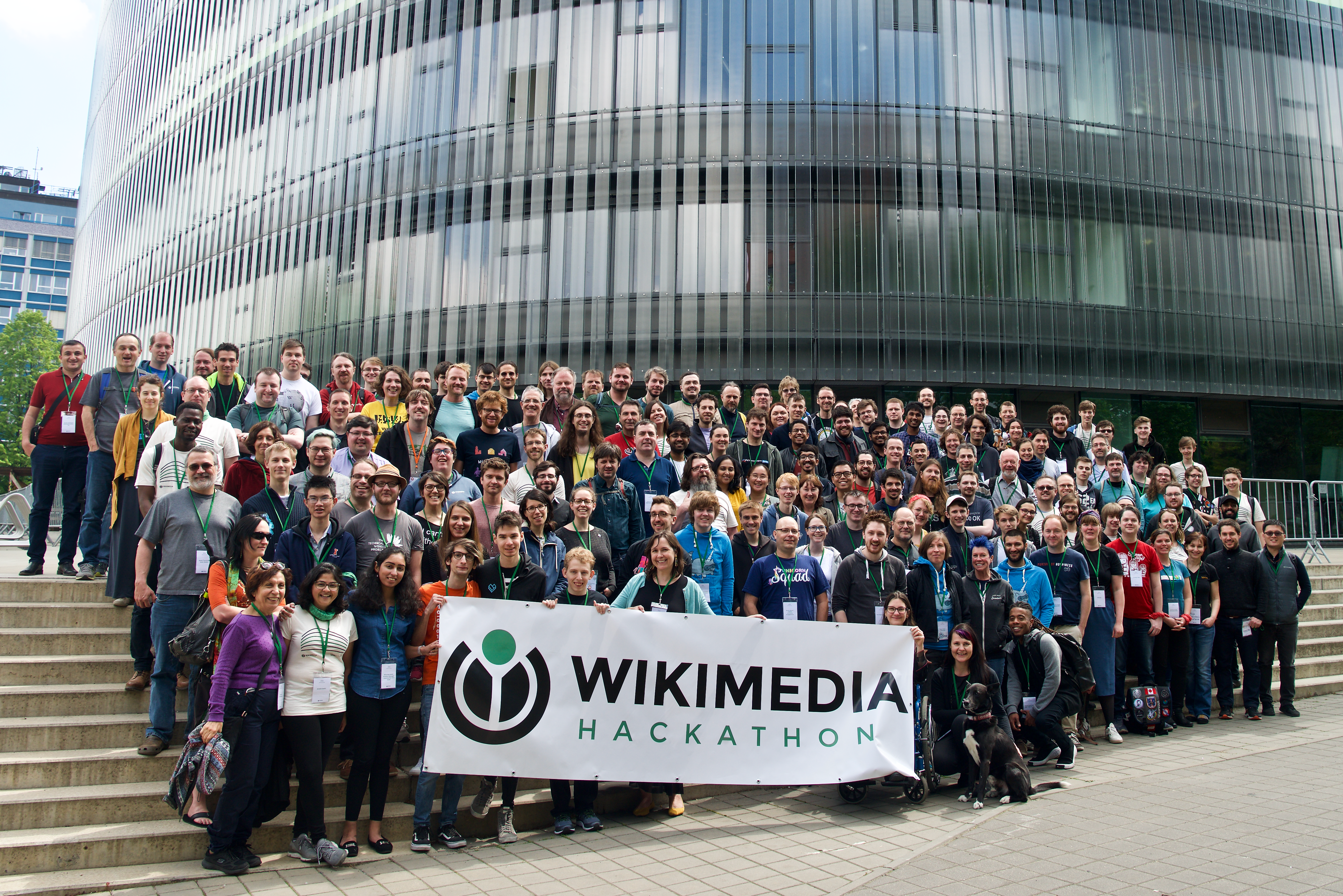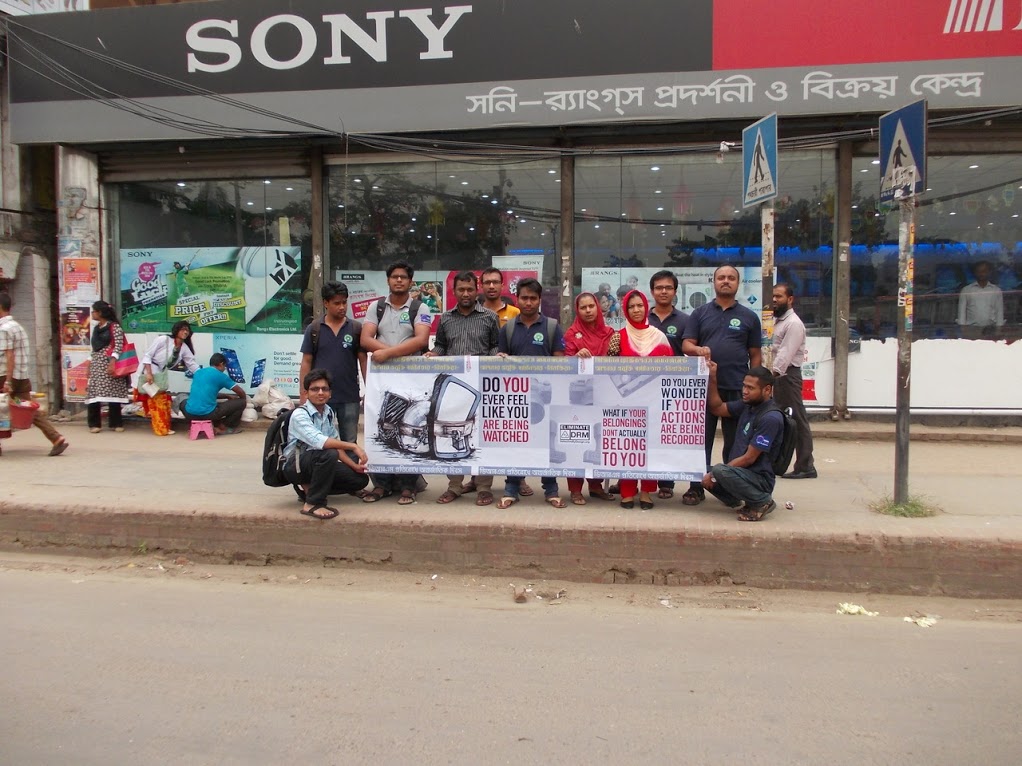|
Hardware Freedom Day
Hardware Freedom Day is an annual celebration organized by the Digital Freedom Foundation. The goal of Hardware Freedom Day is to celebrate the spirit of Open-source hardware, open hardware and make more people aware of using and contributing to free and hardware projects. The first Hardware Freedom Day was held on April 20, 2013. The 2022 date is 4/16. Goals * To spread awareness about Open hardware, free and open hardware * To encourage user contribution * To provide a common platform for people passionate about open hardware to share their ideas and interests Schedule Anybody can organize a Hardware Freedom Day event and there is no rigid schedule followed. Digital Freedom Foundation co-ordinates the event at a global level, providing support, giveaways and a centralized collaboration space. However, volunteer teams around the world organize the events by themselves. Some common activities of Hardware Freedom Day events are * Workshops on various kinds of open hardware * Ha ... [...More Info...] [...Related Items...] OR: [Wikipedia] [Google] [Baidu] |
Digital Freedom Foundation
Digital Freedom Foundation (DFF) is a non-profit organization established in 2004. The group is the lead organizer of Software Freedom Day, and Hardware Freedom Day, as well as other "freedom days". History The organization was founded in 2004 as Software Freedom International, and formally registered as a charity in 2007. In 2011, the group changed its name to the "Digital Freedom Foundation" to reflect the creation of additional "freedom days" celebrating culture, hardware, and education. In 2015, the DFF became responsible for organizing the annual Document Freedom Day, which was initially started by the Free Software Foundation Europe. The DFF had received tax-empt status in the United States under its original name in order to make donations tax-deductible. Since then, the organization moved to Hong Kong before registering in Cambodia following the relocation of several board members. Events The Digital Freedom Foundation organizes the following "freedom day" events ... [...More Info...] [...Related Items...] OR: [Wikipedia] [Google] [Baidu] |
Open-source Hardware
Open-source hardware (OSH) consists of physical artifacts of technology designed and offered by the open-design movement. Both free and open-source software (FOSS) and open-source hardware are created by this open-source culture movement and apply a like concept to a variety of components. It is sometimes, thus, referred to as FOSH (free and open-source hardware). The term usually means that information about the hardware is easily discerned so that others can make it – coupling it closely to the maker movement. Hardware design (i.e. mechanical drawings, schematics, bills of material, PCB layout data, HDL source code and integrated circuit layout data), in addition to the software that drives the hardware, are all released under free/libre terms. The original sharer gains feedback and potentially improvements on the design from the FOSH community. There is now significant evidence that such sharing can drive a high return on investment for the scientific community. It is n ... [...More Info...] [...Related Items...] OR: [Wikipedia] [Google] [Baidu] |
Open Hardware
Open-source hardware (OSH) consists of physical artifact (software development), artifacts of technology designed and offered by the open-design movement. Both free and open-source software (FOSS) and open-source hardware are created by this open-source#Society, open-source culture movement and apply a like concept to a variety of components. It is sometimes, thus, referred to as FOSH (free and open-source hardware). The term usually means that information about the hardware is easily discerned so that others can make it – coupling it closely to the Maker culture, maker movement. Hardware design (i.e. mechanical drawings, circuit diagram, schematics, bills of material, printed circuit board, PCB layout data, hardware description language, HDL source code and integrated circuit layout data), in addition to the software that device driver, drives the hardware, are all released under free/Libre content, libre terms. The original sharer gains feedback and potentially improvements on ... [...More Info...] [...Related Items...] OR: [Wikipedia] [Google] [Baidu] |
Hackathon
A hackathon (also known as a hack day, hackfest, datathon or codefest; a portmanteau of hacking and marathon) is an event where people engage in rapid and collaborative engineering over a relatively short period of time such as 24 or 48 hours. They are often run using agile software development practices, such as sprint-like design wherein computer programmers and others involved in software development, including graphic designers, interface designers, product managers, project managers, domain experts, and others collaborate intensively on engineering projects, such as software engineering. The goal of a hackathon is to create functioning software or hardware by the end of the event. Hackathons tend to have a specific focus, which can include the programming language used, the operating system, an application, an API, or the subject and the demographic group of the programmers. In other cases, there is no restriction on the type of software being created or the design of the ne ... [...More Info...] [...Related Items...] OR: [Wikipedia] [Google] [Baidu] |
Document Freedom Day
Document Freedom Day (DFD) is an annual event to "celebrate and raise awareness of Open Standards". It is celebrated on the last Wednesday of March each year. Document Freedom Day was first celebrated on 26 March 2008, and has continued to be celebrated every year since. Document Freedom Day is organised by a team of volunteers of the Digital Freedom Foundation since 2016. It was previously organised by the Free Software Foundation Europe. DFD is funded by donors and partners which vary from year to year. DFD 2013 was the largest ever with 60 events in 30 countries. A year later, in 2014, 51 groups in 22 countries held events celebrating Document Freedom Day. In 2019 it took place on Wednesday 27 March. Relationship to free software Document Freedom Day is a campaign about open standards and document formats, aimed at a non-technical audience. Open standards ensure communication is independent of software vendor; this, in turn, ensures that people "are able to communicate and ... [...More Info...] [...Related Items...] OR: [Wikipedia] [Google] [Baidu] |
Software Freedom Day
Software Freedom Day (SFD) is an annual worldwide celebration of Free Software organized by the Digital Freedom Foundation (DFF). SFD is a public education effort with the aim of increasing awareness of Free Software and its virtues, and encouraging its use. SFD was established in 2004 and was first observed on 28 August of that year. About 12 teams participated in the first Software Freedom Day. Since that time it has grown in popularity and while organisers anticipated more than 1,000 teams in 2010 the event has stalled at around 400+ locations over the past two years, representing a 30% decrease over 2009. Since 2006 Software Freedom Day has been held on the third Saturday of September. In 2022, this event will be held on 17 September. Organization Each event is left to local teams around the world to organize. Pre-registered teams (2 months before the date or earlier) receive free schwag sent by DFF to help with the events themselves. ThSFD wikicontains individual ... [...More Info...] [...Related Items...] OR: [Wikipedia] [Google] [Baidu] |
Culture Freedom Day
Culture Freedom Day is an observance of free culture. It takes place annually on the third Saturday of May. It aims at educating the worldwide public about the benefits of using and encouraging free culture as well as providing an international day to serve as a platform to promote free culture artists. Free culture The term "free culture" was originally the title of a 2004 book by Lawrence Lessig, considered a founding father of the free culture movement. Free culture movement is dedicated to creating and making available their art, allowing others to freely use, study, distribute and improve on the work of others. Redistribution of those improvements are of course allowed and encouraged. The free culture movement opposes practices such as copyright extensions and attempts at suppressing the 'fair use rights' by the traditional media industry. Celebrations The first observance of the Culture Freedom Day dates to 2012. It takes place on the third Saturday of each May. The Cu ... [...More Info...] [...Related Items...] OR: [Wikipedia] [Google] [Baidu] |
Public Domain Day
Public Domain Day (PDD) is an observance of when copyrights expire and works enter into the public domain. This legal transition of copyright works into the public domain usually happens every year on January 1 based on the individual copyright laws of each country. The observance of a "Public Domain Day" was initially informal; the earliest known mention was in 2004 by Wallace McLean (a Canadian public domain activist), with support for the idea echoed by Lawrence Lessig. Several websites list the authors whose works are entering the public domain each January 1. There are activities in countries around the world by various organizations all under the banner Public Domain Day. Public domain Copyright protection terms are typically described as expiring a number of years after the end of the calendar year when the author died ( or ''pma''). Durations vary by country; in many jurisdictions, including the US and European Union, copyright usually lasts 70 years '. In such count ... [...More Info...] [...Related Items...] OR: [Wikipedia] [Google] [Baidu] |
Defective By Design
Defective by Design (DBD) is an anti-DRM initiative by the Free Software Foundation. Digital rights management (DRM) technology restricts users' ability to freely use their purchased movies, music, literature, software, and hardware in ways they are accustomed to with ordinary non-restricted media (such as books and audio compact discs). As a result, DRM has been described as "digital ''restrictions'' management" or "digital ''restrictions mechanisms''" by opponents.Digital Restrictions Management DRM.info. Retrieved on 2013-07-29.What is DRM? Defective by Design. Retrieved on 2013-07-29. [...More Info...] [...Related Items...] OR: [Wikipedia] [Google] [Baidu] |
International Day Against DRM
International Day Against DRM (IDAD), sometimes called just Day Against DRM or anti-DRM day, is a grassroots international observance of protests against digital rights management (DRM) technology. The event is intended as "a counterpoint to the pro-DRM message broadcast by powerful media and software companies" and aims to draw attention to Digital rights management#Opposition, DRM's anti-consumer aspects. Background International Day Against DRM has been also described as a reaction against the lobbyist-dominated World Intellectual Property Day of the World Intellectual Property Organization, which promotes DRM. World Intellectual Property Day has been criticized by the activists from civil society organizations such as IP Justice and the Electronic Information for Libraries who consider it one-sided propaganda as the marketing materials associated with the event, provided by WIPO, "come across as unrepresentative of other views and events". Michael Geist, a law professor at ... [...More Info...] [...Related Items...] OR: [Wikipedia] [Google] [Baidu] |
April Observances
April is the fourth month of the year in the Gregorian calendar, Gregorian and Julian calendar, Julian calendars. It is the first of four months to have a length of 30 days, and the second of five months to have a length of less than 31 days. April is commonly associated with the season of autumn in parts of the Southern Hemisphere, and Spring (season), spring in parts of the Northern Hemisphere, where it is the seasonal equivalent to October in the Southern Hemisphere and vice versa. History The Romans gave this month the Latin name ''Aprilis''"April" in ''Chambers's Encyclopædia''. London: George Newnes Ltd, George Newnes, 1961, Vol. 1, p. 497. but the derivation of this name is uncertain. The traditional etymology is from the verb ''aperire'', "to open", in allusion to its being the season when trees and flowers begin to "open", which is supported by comparison with the modern Greek use of wikt:άνοιξη#Greek, άνοιξη (''ánixi'') (opening) for spri ... [...More Info...] [...Related Items...] OR: [Wikipedia] [Google] [Baidu] |






